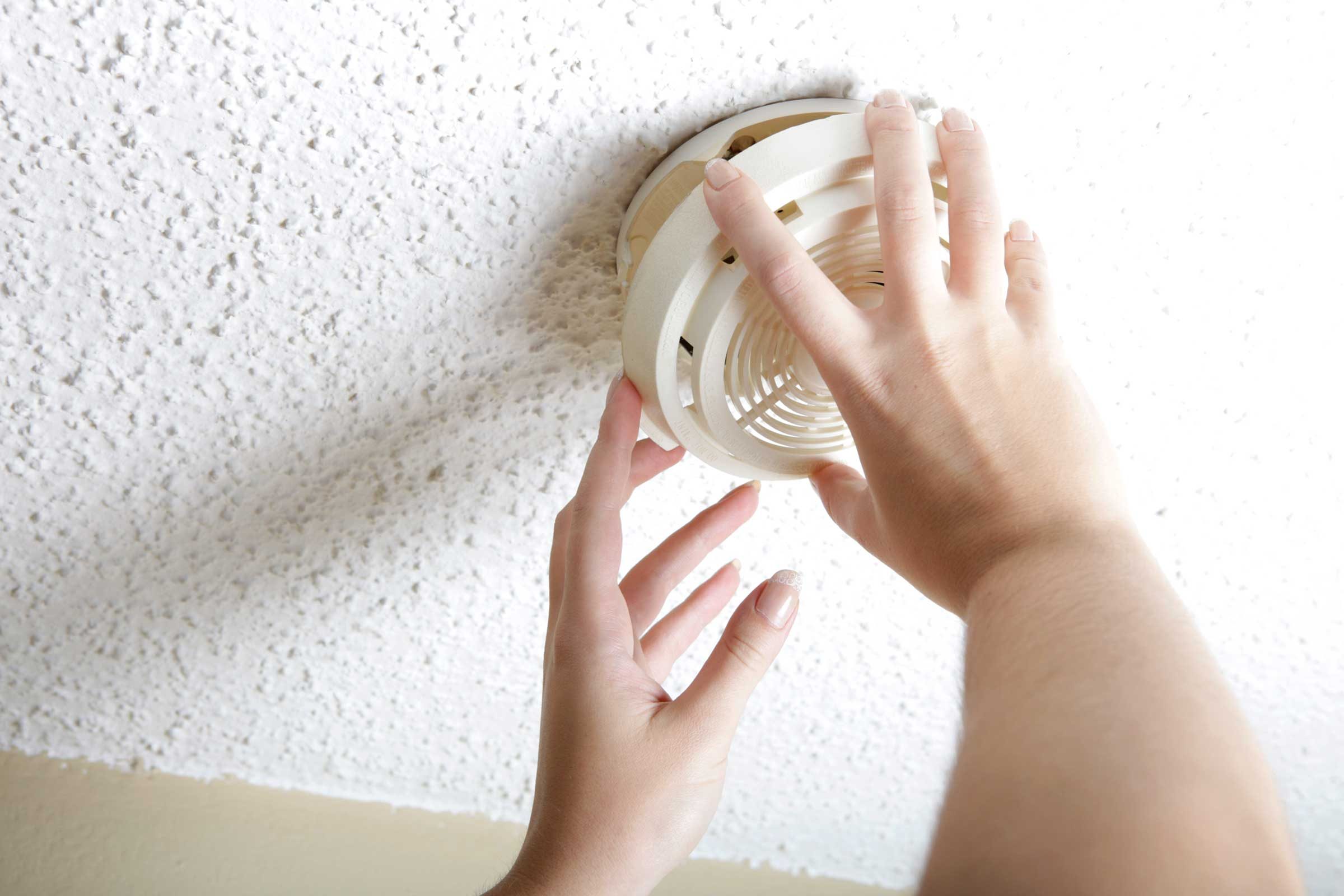
Smoke/carbon monoxide detectors and their batteries
Per the U.S. Fire Administration, the rule of thumb is to typically replace the entire smoke or CO alarm by the date of manufacture printed on the alarm itself. But you should still test the alarm every month and replace batteries at least twice a year.
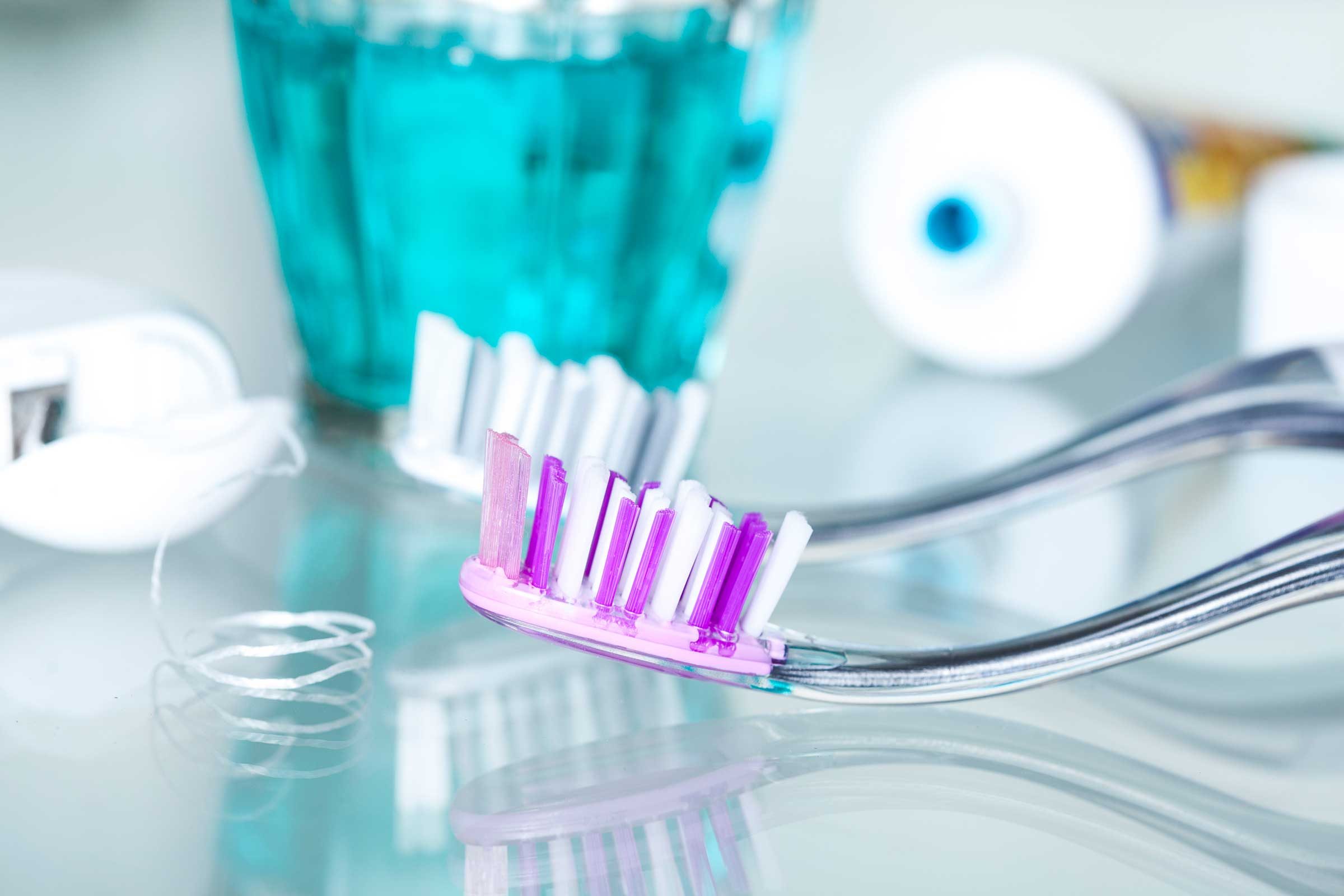
Toothbrush
Dental company Oral-B recommends replacing your toothbrush every three months. If you notice the bristles are frayed, replace it sooner. It’s also a good idea to replace your toothbrush after you’re sick to avoid spreading germs to fellow toothbrushes nearby.

Makeup
Most makeup has a printed recommendation on the package for how long you should use it from the time you open the package. Most powders and eyeshadows can last 12-15 months (some powders list 30 months), but liquids like mascara and eyeliner have a shorter shelf life. Always replace makeup if you’ve had a cold sore or pink eye.
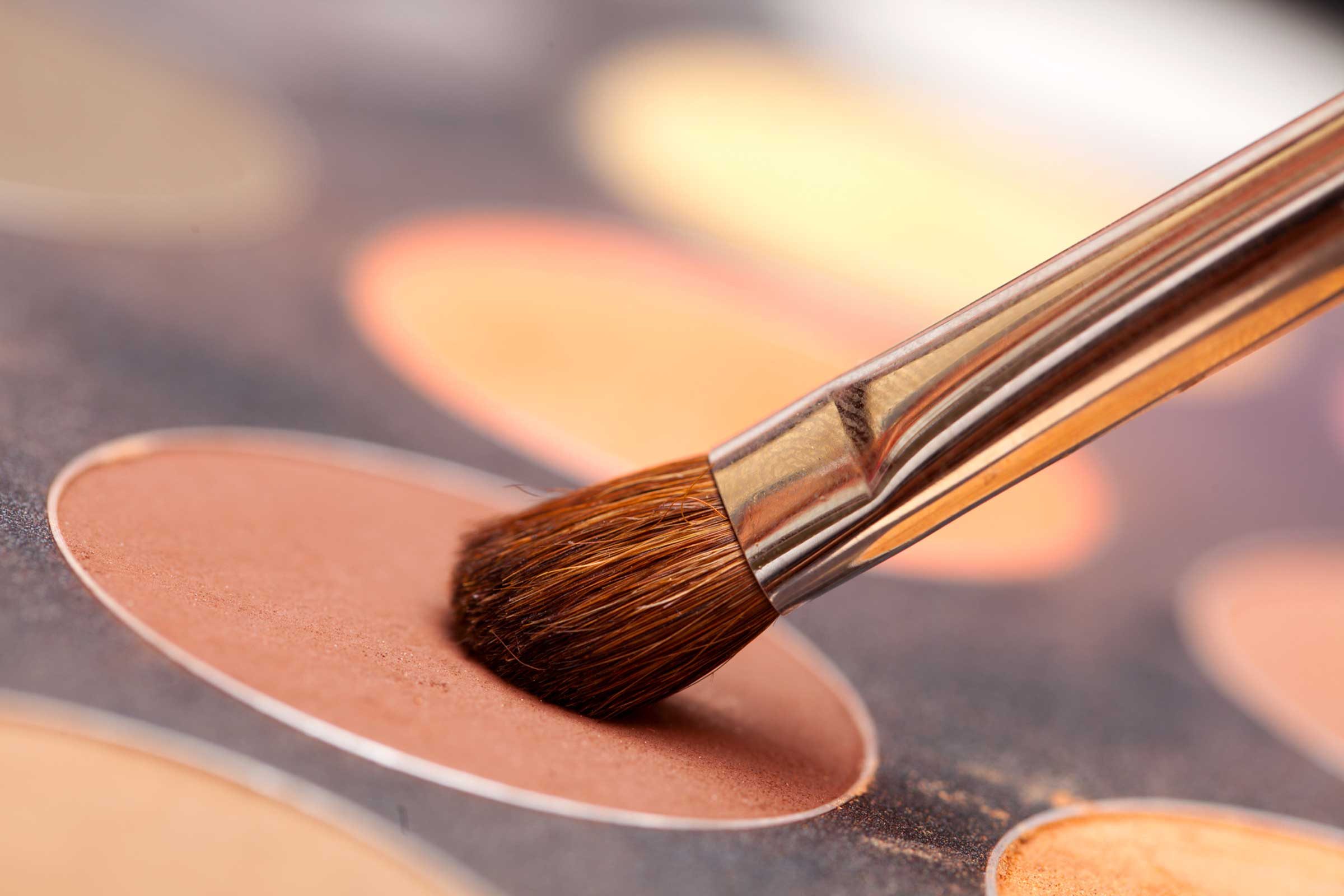
Makeup brushes
We use these almost every day and rarely wash them—let alone replace them. If you notice the bristles on the brush are fraying or can’t remember the last time you replaced them, toss them!
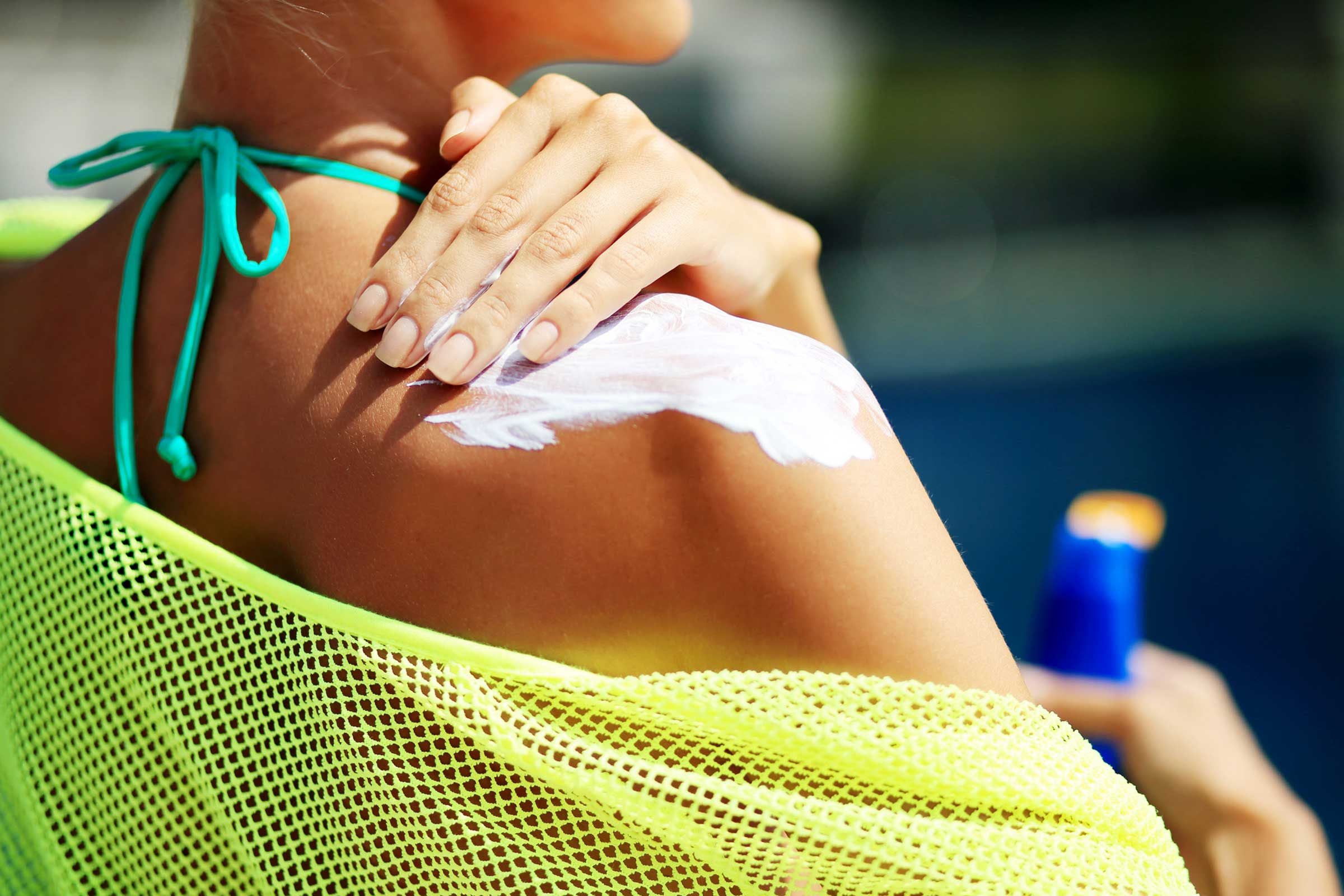
Sunscreen
Sunscreen has a shelf life too. To be safe, replace those half-filled leftover bottles every season—expired sunscreen may not be as effective.
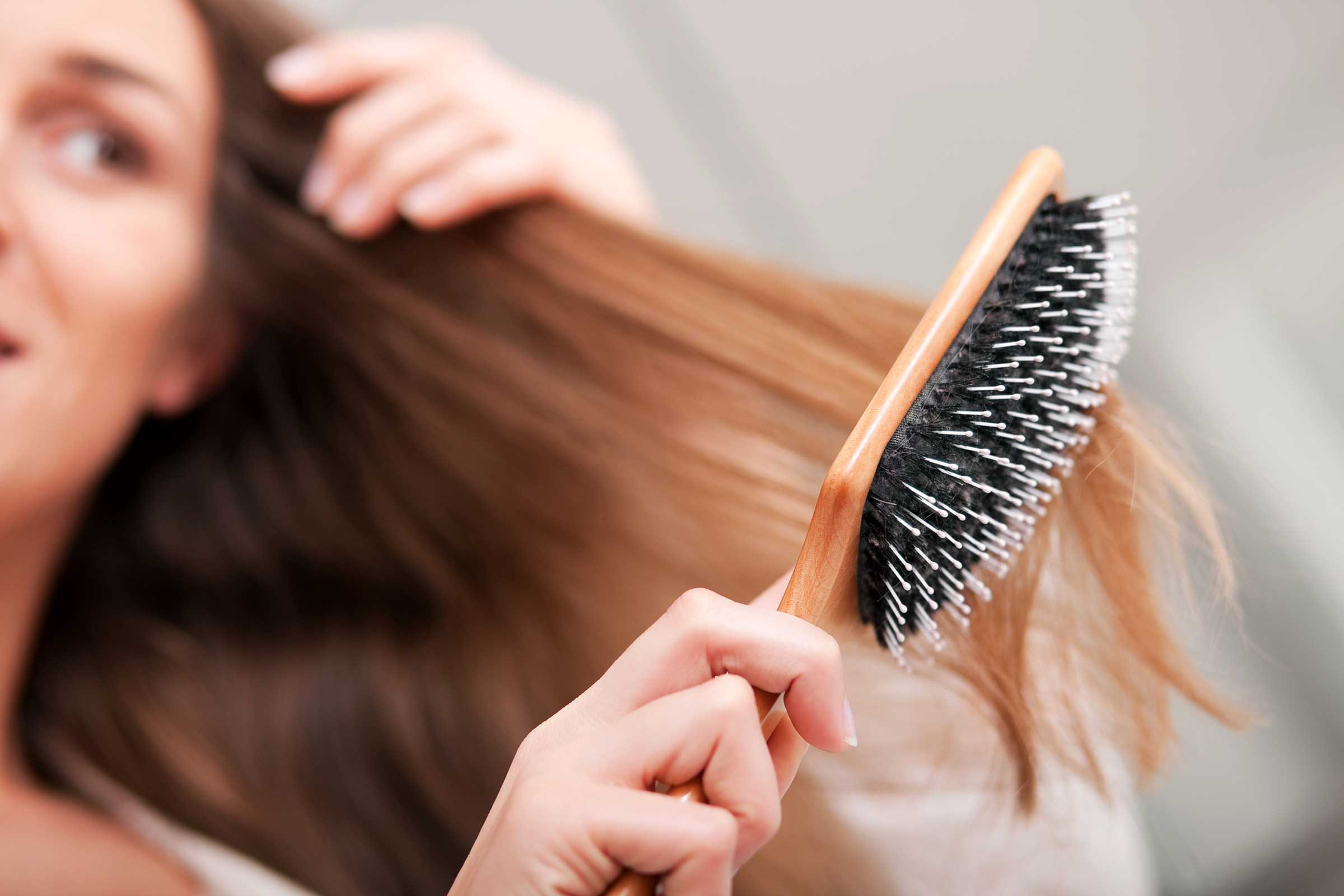
Hairbrush
The folks at Safebee recommend replacing your hairbrushes every one to two years, but the best gauge is wear and tear, not the calendar. Round brushes, especially if you use them while you blow-dry your hair, tend to have the shortest lifespan. If a plastic-bristle brush is losing the little round balls at the end of the bristles, it’s time to toss it.
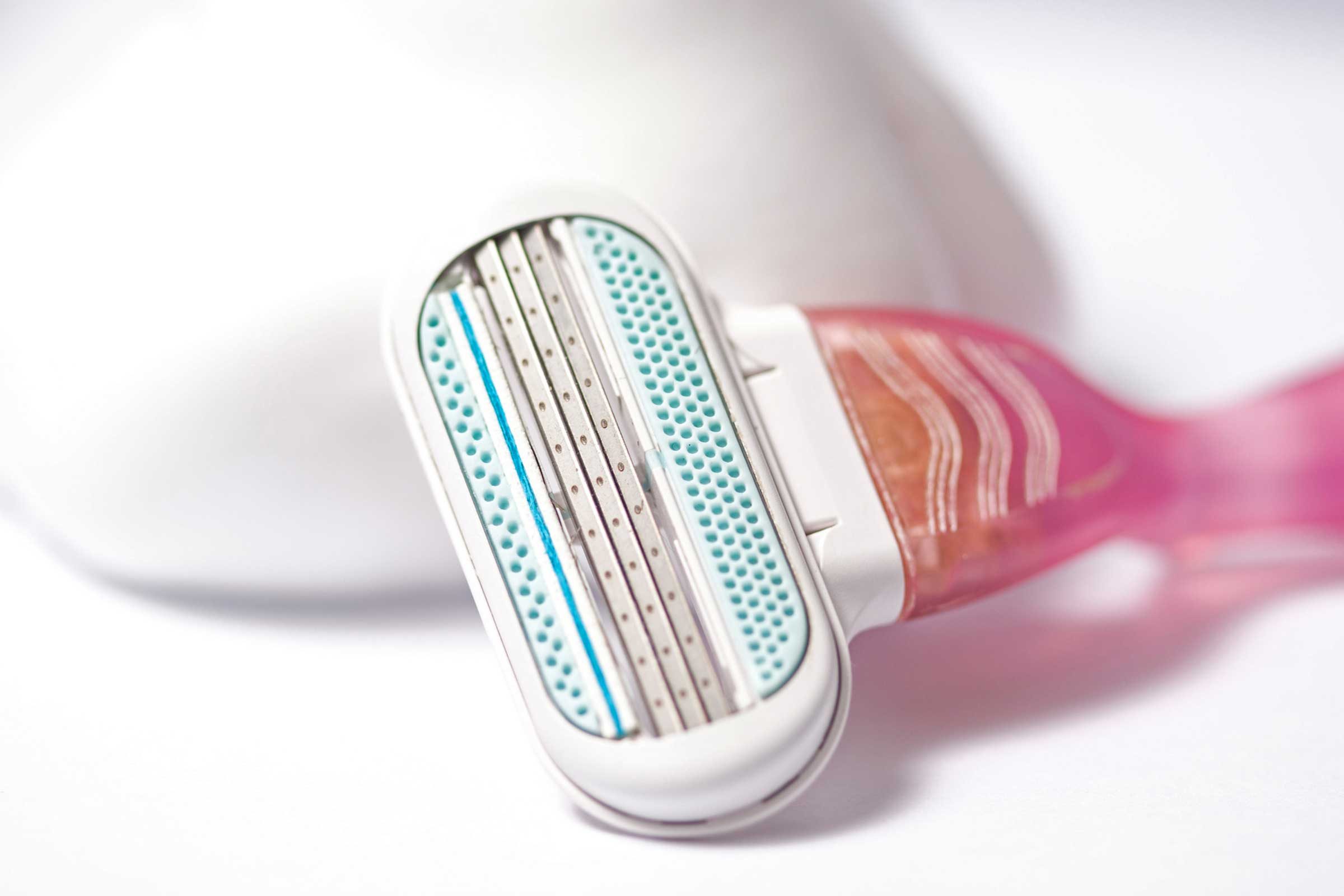
Razors
Most people try to squeeze as much use out of their razors and switch when they start to get razor burns or nicks. Grooming Lounge recommends replacing your multi-blade razor cartridges out every three to four shaves.

Cabinet liners
Have you taken a look at those ratty cabinet liners underneath your dishes? They are probably discolored, ripped, or full of crumbs or other dirt. Gross. Toss them and put some new ones under there which will help protect your dishes, mugs, and glassware from chips.
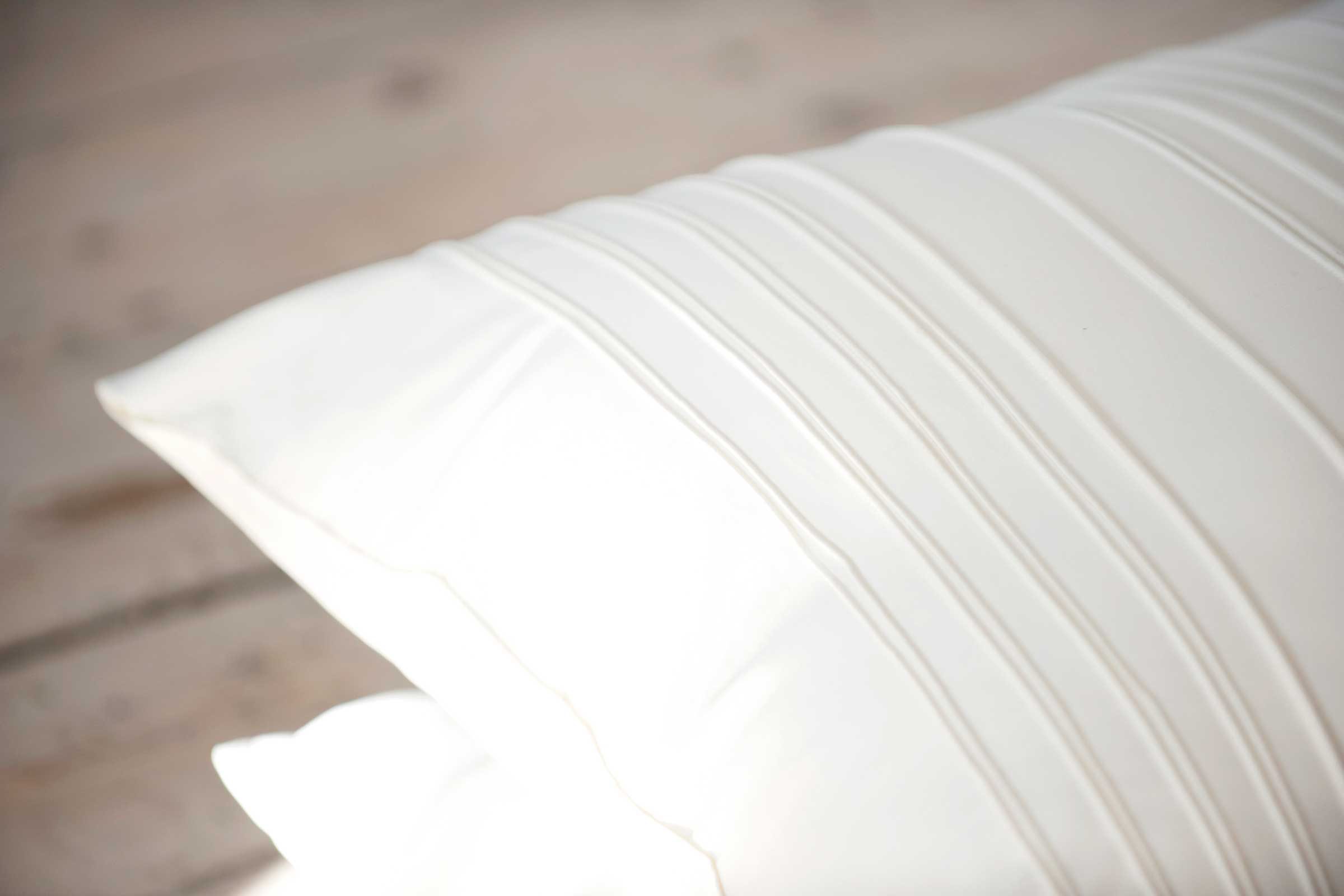
Bed pillows
You spend hours on it every night drooling, sweating, and jamming your face and hair up into your pillows. Similar to mattresses, pillows harbor dust mites. AllerEase recommends replacing your bed pillow every two to three years—but every year if they are used nightly.
Dust Allergy? 7 Smart Strategies to Get Rid of the Dust in Your House
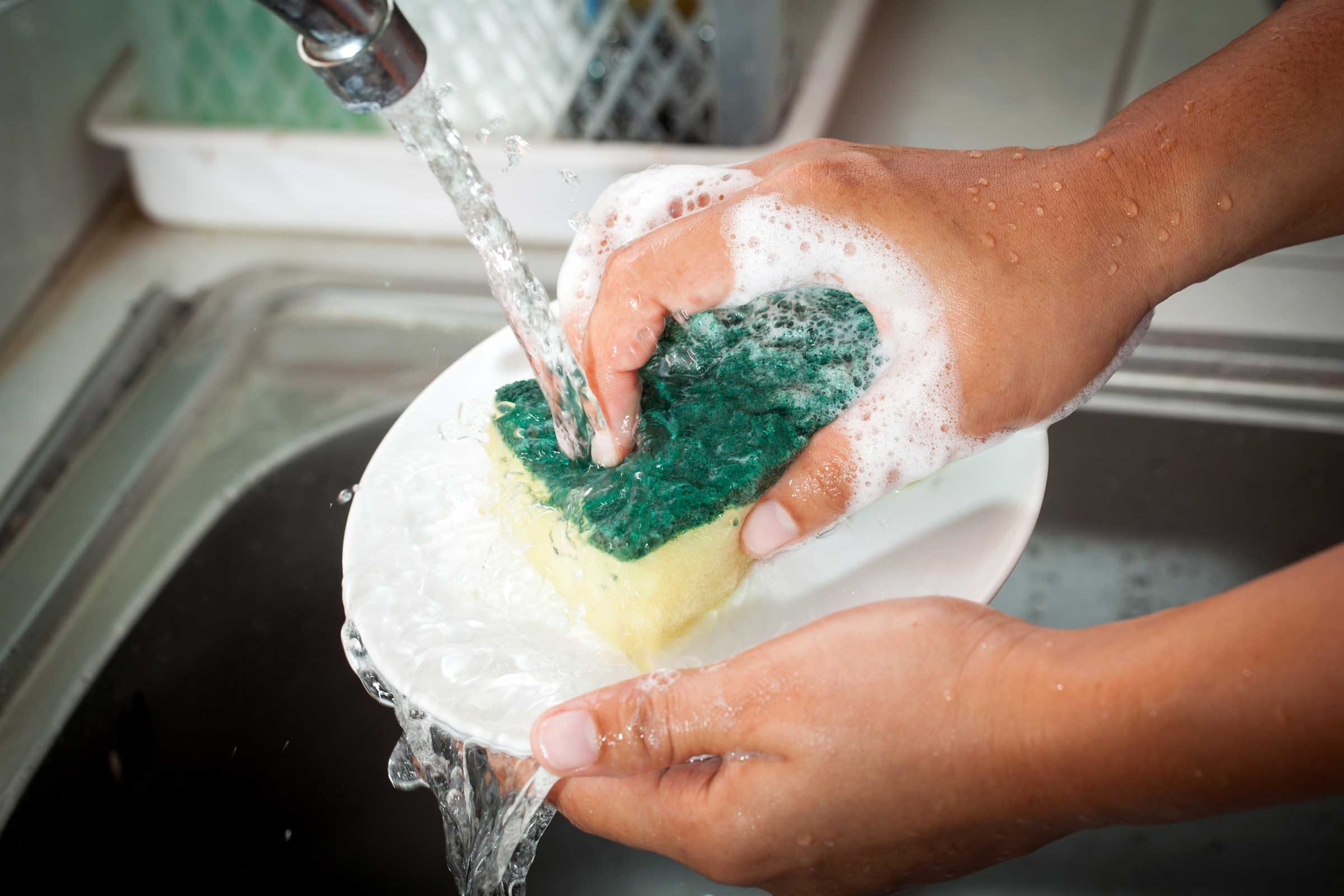
Kitchen sponges
According to WebMD, your kitchen sponge is one of the biggest germ magnets in the house. That’s because the moist micro-crevices that make a sponge such an effective cleaning device also make a perfect home for germs (and more difficult to disinfect). You can clean your kitchen sponge by wetting it and putting it in the microwave for two minutes to disinfect, but it should be replaced at least every three weeks.

Kitchen cutting boards
Like kitchen sponges, cutting boards take a beating and can often harbor bacteria, but many people don’t replace them for years (or even decades). Food Handler says, “Most important in cutting board safety is knowing when to replace the board. Once deep grooves form in the board, it is time to discard the board. These grooves are a breeding ground for pathogenic microorganisms.”

Your car tires
The average car needs new tires every 25,000 to 50,000 miles, but this can vary depending upon how often you drive and the conditions in which you drive. Kelley Blue Book advises paying close attention to recommendations according to what sort of car you own, where and how you drive it, and how well you care for your tires.

Your car insurance company
Most people keep the same car insurance company for years, whether it’s the one your parent recommended when you got your first car or the one your partner had when you got married, says Kerri Moriarty, part of the founding team at Cinch Financial. “It’s one of those things you get and keep renewing each year, but the companies change their pricing strategies all the time. Just because it was the cheapest when you got it doesn’t mean it’s the cheapest now.”

Cell phone provider
“Cell phone companies are always vying for your business,” says Moriarty, “fighting both to keep you and to convince you to switch.” In most areas, the coverage among the major carriers can be similar but it’s worth shopping around to see what promotions are going on, especially if you’re acquiring a new device, says Moriarty.

Cable company
“Often you have at least two choices for cable where you live,” Moriarty says. “Why not pit them against each other to make sure you get the best deal? Most cable promos run for 12 or 24 months, and after that you should replace them. Why pay more when you can get the same for less?”